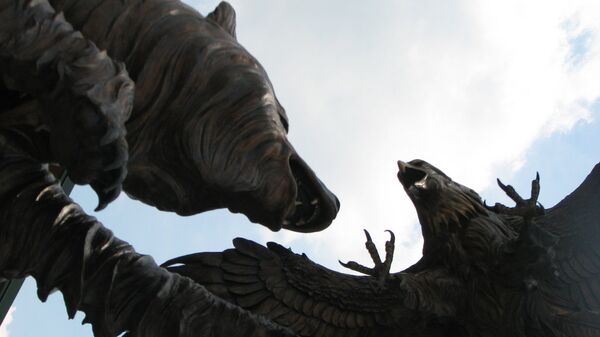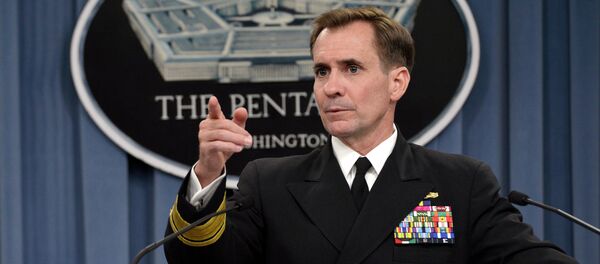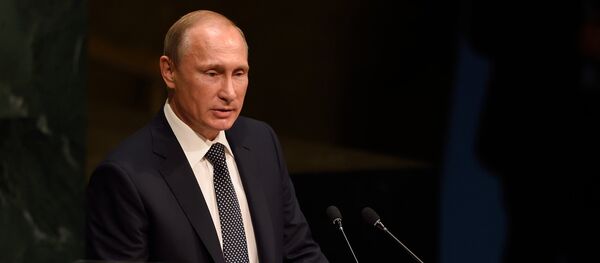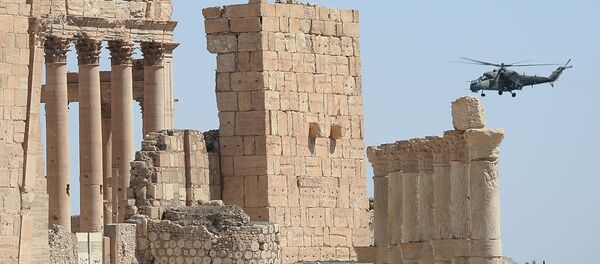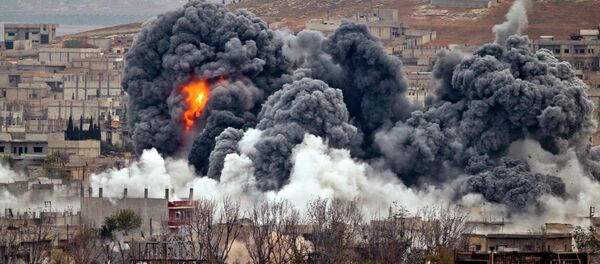Last week, commenting on the resumption of hostilities in Syria, State Department spokesman John Kirby suggested that if the Syrian government's offensives against militants continue, extremist groups might attack Russian cities, and Moscow "will continue to send troops home in body bags, and…to lose resources, perhaps even aircraft."
US officials' remarks were met with a harsh response from their Russian counterparts, Defense Ministry spokesman Igor Konashenkov suggesting that Kirby's comments were a "frank admission" that the Syrian opposition is a US-controlled "terrorist Internationale."
Presidential spokesman Dmitri Peskov, meanwhile, limited his comments to calling Kirby's words "clumsy," and promising that Moscow will continue to assist the Syrian military.
Meanwhile, Russian experts are concerned that harsh rhetoric might quickly turn into direct clashes, with Moscow and the US engaging in an all-out 'war by proxy' in Syria. Analysts have pointed out that Russia has not been able to achieve even limited cooperation with the Obama administration on Syria, and things might get even worse under his successor.
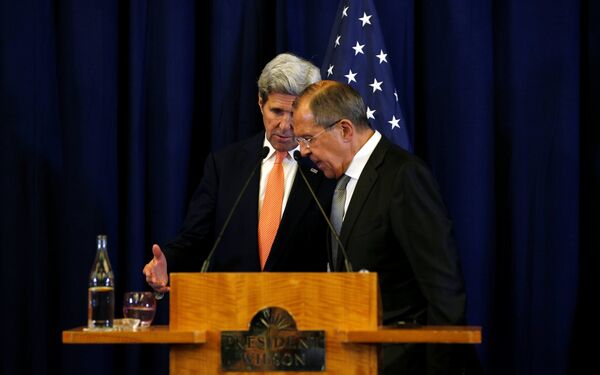
Speaking to the independent online newspaper Svobodnaya Pressa, Sergei Ermakov, a senior expert at the Russian Institute for Strategic Studies, said that Moscow and Washington have found themselves in a "deadly embrace" over the Middle Eastern country.
"In its intensity, it surpasses even the Cold War," the analyst suggested. "It's true that our two countries are not engaged in an ideological confrontation, but this, oddly enough, makes the situation even more unpredictable, and therefore more dangerous."
"For example, both Russia and the US pay lip service to fighting a war on international terrorism. But in practice, the two sides demonstrate diametrical approaches to the problem, and this is strikingly illustrated by the situation in Syria."
"Therefore," the analyst suggested, "the scenarios for proxy conflicts with the US can take severe and dramatic turns – that much was confirmed by Kirby's remarks. Washington did not allow itself to make such frank statements even during the Cold War. Factually, behind Kirby's words is a direct threat."
Ermakov stressed that "it's clear that Russia's response to this threat will consist of holding to our position in Syria, whatever the US may be willing to stoop to."
According to the expert, US efforts to undermine Russia may include using 'moderate opposition' forces to strike the Russian contingent, supplying militants with advanced weapons, coordinating their activities and sharing intelligence information. This scenario could result in Russian aircraft may be shot down.
"In fact, this was the same thing the US did in Afghanistan; really the subtext of Kirby's statement was exactly that – a threat to move the Afghan scenario to Syrian soil. In Afghanistan, we can recall, the Mujahedeen also transitioned from using ancient Enfield rifles to modern weapons, after the US revised its strategy."
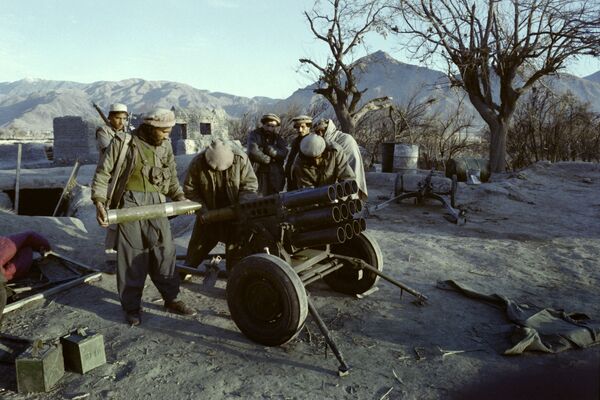
Ultimately, whatever happens next, Ermakov emphasized that "if Russia were to show weakness in response to the US threat, the situation would shift fundamentally [against it] in all respects, including in negotiations and the working group on restoring Syria; therefore, there will not be any significant concessions on our part."
Unfortunately, the analyst noted, Russian-US tensions over Syria aren't likely to ease any time soon. "The interests which have been affected are very serious…I think this conflict will remain a trend for a long time, and the new US administration will not affect it. Foreign policy processes have their own inertia, largely determining the actions of the new president and his or her cabinet. I do not exclude that the new president, whoever it may be, will be put in a situation where he or she will not be able to drastically turn the tables."
"One has to understand that the US president is just the tip of the iceberg. Behind him is a team of actors and groups that support him. Perhaps the worsening situation in Syria today was created so that the new leader will not leave the desired 'policy line'."
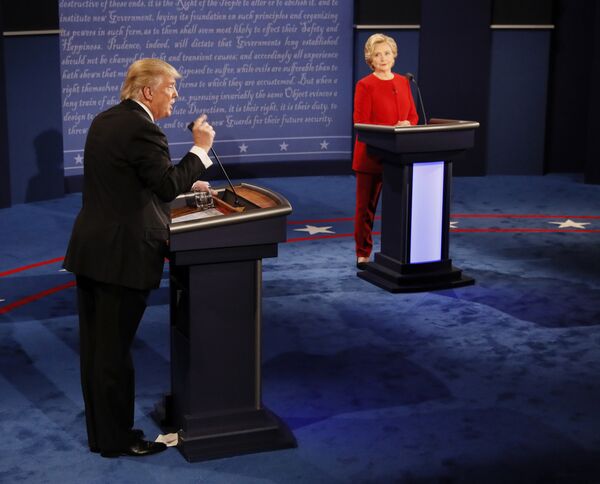
Accordingly, so long as Syrian government continue to have the upper hand, and to demonstrate the greater will to win, US officials' "hysteria" about Damascus's successes, and about Russia's support for Damascus, will continue. "But it will move to the area of information and psychological warfare, including a global operation to discredit Russia. However, I am confident that it will not reach the level of direct military clashes."
Karyakin believes that Russia's only option is to dig in its heels. "One must understand that this is a regional conflict involving major oil and gas interests. Saudi Arabia and Qatar want to lay oil and gas pipelines through Syrian territory to Turkey; the Assad government is interfering with these plans. Turkey, in turn, wants to become an international energy hub, capable of dictating terms not just to Europe, but to Gazprom."
Ultimately, the analyst suggested that given the intense geopolitical and geoeconomic interests involved, in the nearest future the Syrian war "may be unlikely to expand, but neither will it become any less fierce."
